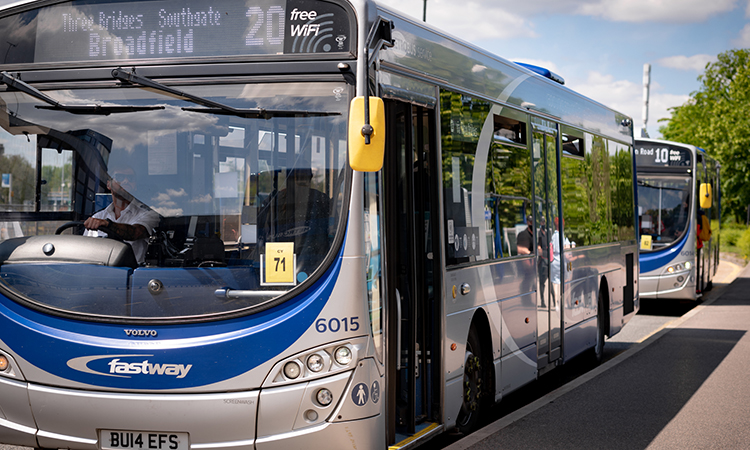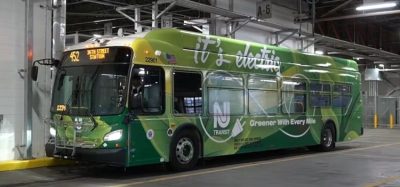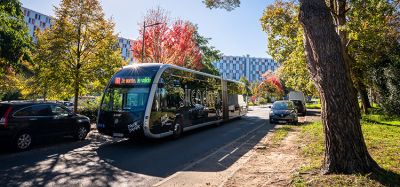Go-Ahead Group signs contract for its first hydrogen fuel cell buses
- Like
- Digg
- Del
- Tumblr
- VKontakte
- Buffer
- Love This
- Odnoklassniki
- Meneame
- Blogger
- Amazon
- Yahoo Mail
- Gmail
- AOL
- Newsvine
- HackerNews
- Evernote
- MySpace
- Mail.ru
- Viadeo
- Line
- Comments
- Yummly
- SMS
- Viber
- Telegram
- Subscribe
- Skype
- Facebook Messenger
- Kakao
- LiveJournal
- Yammer
- Edgar
- Fintel
- Mix
- Instapaper
- Copy Link
Posted: 4 November 2021 | Intelligent Transport | No comments yet
Brighton & Hove and Metrobus have ordered 20 hydrogen fuel cell vehicles, which are set to be delivered in June 2022, signalling the Go-Ahead Group’s first order of hydrogen powered buses.


Credit: The Go-Ahead Group
The Go-Ahead Group has announced that it has signed a contract to buy its first hydrogen powered buses, as part of a deal which could become the largest of its kind in Europe.
Brighton & Hove and Metrobus have ordered 20 hydrogen fuel cell vehicles from Wrightbus, the Northern Irish manufacturer, for deployment on the Fastway routes in the Crawley, Redhill and Gatwick Airport area. The single-decker GB Kite Hydroliner buses will be delivered in June 2022 and will be the first hydrogen powered vehicles in Go-Ahead’s fleet of more than 6,000 buses.
The single-decker fuel cell buses are part funded with money from UK government and European Union (EU) zero-emission bus schemes.
Brighton & Hove and Metrobus are pursuing a second tranche of a further 34 buses to operate on other services in the Fastway bus rapid transit network – a network of guided busways and dedicated bus lanes designed to speed buses past congestion hotspots – and on the majority of services which are operated by Metrobus in Surrey. If completed, this has the potential to be Europe’s biggest local fleet of hydrogen buses to date.
As well as having zero carbon emissions, hydrogen buses have long range capabilities and can be refuelled quickly in depots. Go-Ahead is already the UK’s largest operator of zero-emission electric buses, with a fleet of nearly 300 nationwide, but this is the group’s first venture into hydrogen.
David Brown, Chief Executive of The Go-Ahead Group, said: “This is a significant milestone for Go-Ahead, as we work towards our goal of a zero-emission bus fleet by 2035. These buses will be clean, green and will provide a comfortable journey for passengers. New technology is only one piece of the puzzle though in addressing climate change – we also need to encourage a large-scale change in behaviour by persuading people to switch from cars to walking, cycling and public transport.”
Martin Harris, Managing Director of Brighton & Hove and Metrobus, said: “We run services 24 hours a day, with hilly terrain, heavy passenger loads and duty cycles well in excess of the national average at up to 370 miles per day. Those provide really challenging conditions for any technology, but we concluded that hydrogen provides the most efficient replacement for our diesel buses. To kick start the behaviour change that we need to see in people’s travel habits, we need highway infrastructure that matches the ambition we have for zero emission buses, enabling bus journey times to become significantly quicker and more attractive to motorists.”
Related topics
Alternative Power, Public Transport, Sustainable Urban Transport
Related modes
Bus & Coach
Related cities
United Kingdom
Related organisations
Brighton & Hove Bus Company, European Union (EU), Metrobus, The Go-Ahead Group, UK Government, Wrightbus
Related people
David Brown, Martin Harris








